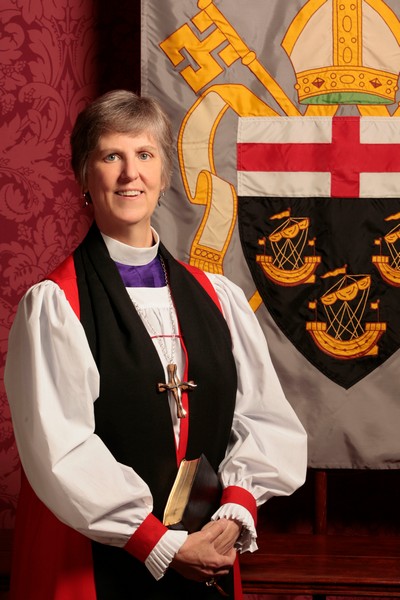Today’s readings focus on the understanding of how Jesus’ presence changes our lives. Isaiah describes God’s necessary judgment and promise of final deliverance and cleansing for the people. The psalmist yearns for God’s presence, especially in times of suffering. Paul writes to the Galatians of their unity and freedom in Christ Jesus. Jesus’ begins his mission to the Gentiles with the expulsion of many demons.
1. Old Testament – Isaiah 65:1-9
Today’s reading comes from near the end of the second part of Isaiah’s prophecy (chapters 40-66) that is primarily composed of words of consolation and encouragement for the exiled Jews. But even here, the Jews are reminded that they must show the proper reverence for God. The long history of improper conduct in response to God’s sacred presence in their midst cannot be forgotten. It will certainly bring God’s judgment.
But as Isaiah emphasizes over and over, this moment of judgment will give way to a time of blessing and restoration for the chosen people and their land. God’s loving faithfulness overrides the demand for judgment and punishment. So, despite the long catalogue of the people’s failures in relation to God, Isaiah once again affirms God’s promise of fidelity and restoration.
2. Epistle -Galatians 3:23-29
This passage is part of Paul’s message that faith in Christ fulfills the law of Moses. Through baptism into Christ, all are now “children of God” (v. 26), the Old Testament designation given to anointed kings (Psalm 2:7) and to the whole people of Israel (Exodus 4:22).
Verses 28-29 are probably based upon a baptismal liturgy. The baptized clothe themselves with Christ and adopt a new personality and a new way of life. Even today the new white baptismal garment reminds us of our incorporation into Christ’s body, the church. Baptism makes us all God’s children and so heirs of the promises to Abraham made long before the law was given to Moses.
The sermon in 2019 took up the above passages.
“What brings God joy? God’s great hope is that we come to know, through Jesus, that all our divisions have come to an end and that we are ONE in Christ Jesus.
Paul says it this way. “There is no longer Jew or Greek, there is no longer slave or free, there is no longer male or female; for all of you are ONE in Christ Jesus.”
“I like this idea that we are all one in Christ Jesus, because our oneness points toward the Trinitarian nature of God—one in three and three in one, Father, Son and Holy Spirit.
“When we are one in Christ Jesus, we are showing to the world what God is like—God, Son and Holy Spirit dwelling in eternal intimacy, One God. That’s why Paul says that we in the church are clothed in Christ. Christ Jesus and his healing, freeing love—Christ Jesus is our uniform. The man possessed by demons in today’s gospel who ran around naked and lived in the tombs ends up clothed and in his right mind at the feet of Jesus after Jesus sends the demons out of him. Jesus has clothed this man with healing love.
“Since the days of the early church, people who decided to follow Jesus and to become a part of the church spent several years in preparation, and when the day of their baptisms came, they took off their old clothes, and entered the water naked. After their baptisms, they came out of the water and were clothed in white robes. Everyone could see that they were now clothed in Christ. And everyone rejoiced.”
“Baptisms are joyful. We are celebrating because we get to witness the person being baptized getting dressed up in Christ. The person being baptized gets to put on the uniform that we are already wearing.
“Yes, good news, a cause for celebration, now and in the world to come! Our places are waiting for us, and our robes are ready.
“The Good News is news we want to share, like the man who has been freed of his demons and clothed in Jesus’ healing love, who goes and proclaims throughout the city how much Jesus has done for him.
“So remember, when we rejoice in our ONENESS, God rejoices too!
And God’s joy makes our joy complete.”
3. Gospel – Luke 8:26-39
Jesus turns his attention to the Gentiles by crossing the Sea of Galilee into their territory. From the Jewish perspective, such a ministry would demand enormous cleansing since Gentile territory would have many possible sources of ritual impurity or “uncleanness” that would prohibit Jews from taking part in worship services. Thus it is not surprising that Jesus confronts a man who is possessed by a multitude of demons—so many that they are identified as a legion (the name for a large Roman military unit of 3000 to 6000 men).
The dramatic healing is only the prelude, though, to the further development of the characteristics of Jesus’ mission. Jesus confronts the demons, requires that they reveal their name—thus giving Jesus power over them—and then grants their wish to infest a herd of swine rather than return to the underworld.
The community is rightly afraid of a man like Jesus who has demonstrated the power and control over demons. This kind of power could be very upsetting to their community and its traditions. So because of their fear, they ask Jesus to leave. The healed man, knowing how his life has been changed for the better, wants to follow Jesus and continue to be with him. Jesus, however, speaks the words that might become the guideline for all his followers, reminding them that the first and most obvious place for their mission is their own household.
So What does this say to us ? Lutheran minister David Lose wrote the following this week:
“I was struck very much by the tail-end of verse 27: “he did not live in a house but in the tombs.” The details of this man’s life are already bleak. Completely dominated by what has mastered him, unable to restrain himself or be restrained, naked and alone, we discover he is also homeless, abandoned, and lives among the tombs; that is, among the dead, in a wasteland, in territory considered unclean, unsafe, and unapproachable
“Horrible. And yet, if we’re honest, not unfamiliar. There are very likely folks in your congregation who have experienced homelessness or been on the brink of that experience. Others “live in the tombs” and in the place of death more metaphorically, but no less painfully. Those trapped by mental illness or addiction. Those in abusive relationships. Those who feel terribly alone. Those who feel that something they’ve done, or something that has been done to them, disqualifies them from acceptance. Those who have been rejected because they do not conform to the norms and identities with which we are most comfortable. Those who struggle to find any sense of value in themselves or purpose in life.
“And the list goes on. Indeed, broadening what it means to “live in the tombs” in this way, there is likely not a single person who has not had this experience.
“What’s easy to overlook in this odd story of eventual healing is that this whole encounter between Jesus and this man lost and living in the tombs is the result of a nearly inexplicable and totally unnecessary detour. This larger scene is set in motion by Jesus’ decision to cross to the other side of the lake. Luke’s narration makes it sound so incredibly happenstance: “One day, Jesus got into a boat with his disciples, and he said to them, ‘Let’s go across to the other side of the lake’” (v. 22). That’s it. No rationale, like pressing crowds or the need for rest. It’s not a shortcut to some ultimate destination. And no plan or purpose is made apparent. Just a desire to cross from the familiar to the unfamiliar, from the known countryside of Capernaum and Galilee to the land of the Gerasenes… and to this man.
“Which may mean that Jesus’ whole point with this detour is to seek him out. To rescue him from his occupation, to return to him his life. While it may seem utterly unnecessary to us, that is, it is absolutely necessary, even crucial, to Jesus and his mission. This is what Jesus does – seeks out and finds the lost. Even more, this is who Jesus is – the one who is: the one who brings good news to the poor, proclaims release to the captives, recovery of sight to the blind, and lets the oppressed go free (4:18).
“And here’s the thing: Jesus is still doing that. He is still going out of his way, still taking the long route, still crossing boundaries, still daring to meet us in the middle of our tombs, in order to heal and restore us. To put it another way, if Jesus goes so far out of his way to encounter this one man, what will keep him from seeking us out, from meeting us where we are and accepting us as we are, from inviting us to come out of the tombs, from daring us to imagine life in abundance, from bidding us to share the news of what has been done for us. The answer, in short, is nothing. Nothing will keep Jesus from reaching out to us, finding us, accepting us, releasing us, calling us, loving us. Nothing.”








